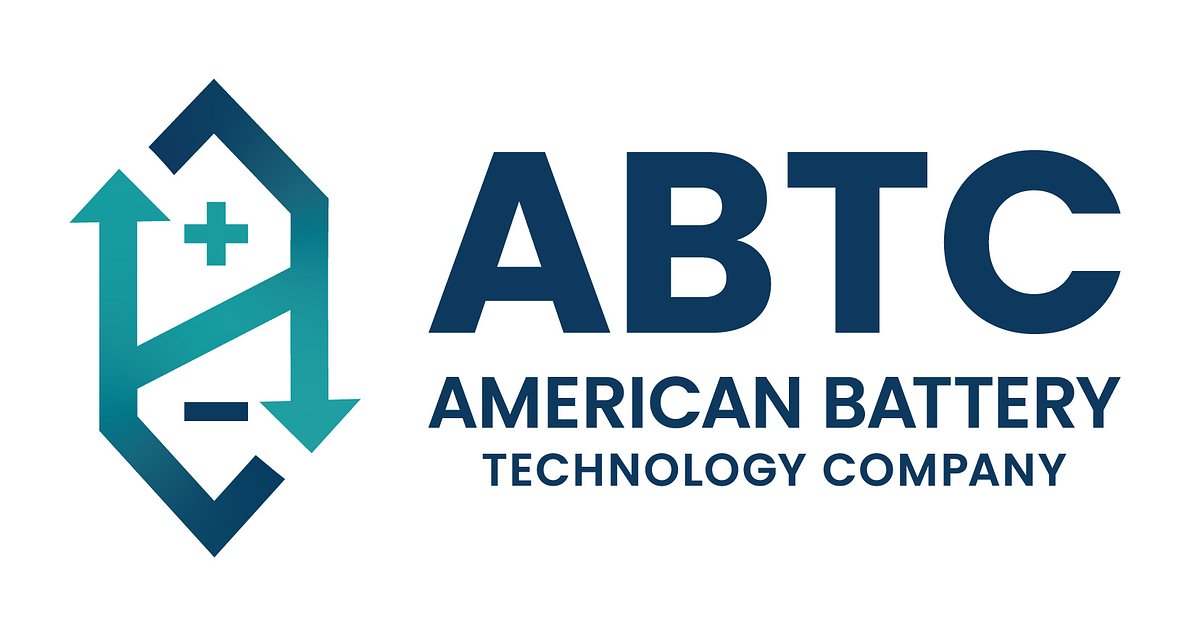
Reno Firm Positions Itself at Center of Global Battery Supply Chain Race
American Battery Technology Corp. is gaining prominence as a key player in securing a domestic supply of critical battery materials, influencing policy at the highest levels and challenging industry norms.
Reno Firm Positions Itself at Center of Global Battery Supply Chain Race
RENO, NV – As global demand for electric vehicles and energy storage surges, a Reno-based company, American Battery Technology Corp. (ABTC), is rapidly emerging as a pivotal player in securing a domestic supply of critical battery materials. Recent appearances at international forums, coupled with significant government funding, are positioning the company at the forefront of a crucial race to diversify supply chains and reduce reliance on foreign sources.
ABTC’s profile was significantly boosted by its participation in the recent IEA Energy Innovation Forum, a key precursor to discussions at the G7 Energy Ministers’ Meeting. The company’s innovative approach to battery recycling and sustainable lithium extraction caught the attention of policymakers and industry leaders alike, prompting discussions on how to scale up domestic production and build a more resilient supply chain.
“There’s a growing awareness that the current reliance on a few countries for critical battery materials is unsustainable,” explained an industry analyst familiar with the discussions. “ABTC is offering a viable path toward domestic production, and that’s resonating at the highest levels.”
Beyond Recycling: A Holistic Approach
While many companies focus solely on recycling end-of-life batteries, ABTC is taking a more holistic approach. The company is developing a closed-loop system that encompasses the entire battery lifecycle, from raw material extraction to end-of-life recycling. This includes developing innovative methods for extracting lithium from sedimentary clay deposits – a potentially abundant source that has historically been difficult to access.
“ABTC isn’t just about taking apart old batteries,” explains a source within the Department of Energy. “They’re looking at the entire ecosystem, and that’s what sets them apart.”
The company’s technology is gaining traction due to its potential to significantly reduce the environmental impact of battery production. Traditional lithium extraction methods can be water-intensive and generate substantial waste. ABTC’s approach aims to minimize water usage and maximize material recovery, contributing to a more sustainable battery industry.
Government Support and Investment
ABTC’s ambitions are fueled by substantial government funding. The company has secured grants from both the Department of Energy and the State of Nevada, demonstrating strong support for its mission. This financial backing is enabling ABTC to scale up its operations and accelerate the development of its innovative technologies.
“The government recognizes the strategic importance of securing a domestic supply of critical minerals,” said a Nevada state economic development official. “ABTC is a key component of that strategy.”
Beyond direct funding, ABTC is also benefiting from supportive policies aimed at encouraging domestic battery manufacturing and recycling. The Inflation Reduction Act, for example, provides tax credits for companies that invest in domestic battery production, creating a favorable environment for ABTC’s growth.
Competition and Challenges
Despite its promising trajectory, ABTC faces stiff competition from established players in the battery materials industry. Companies like Redwood Materials and Albemarle are also investing heavily in domestic battery production and recycling.
“The competition is intense,” said an industry consultant. “ABTC needs to continue innovating and scaling up its operations to stay ahead of the curve.”
One of the biggest challenges facing ABTC is scaling up its lithium extraction technology. While the company has demonstrated the feasibility of its approach in pilot projects, commercial-scale production will require significant investment and technological refinement.
Another challenge is ensuring a stable and reliable supply of end-of-life batteries. As the number of electric vehicles on the road increases, the volume of spent batteries will grow, but collecting and processing these batteries efficiently will require a robust infrastructure.
Influence at the G7 and Beyond
ABTC’s participation in the IEA Energy Innovation Forum wasn’t just a publicity opportunity. The company actively engaged with policymakers and industry leaders, sharing its vision for a sustainable battery supply chain. Several sources confirmed that ABTC’s insights were incorporated into discussions at the subsequent G7 Energy Ministers’ Meeting.
“ABTC was able to articulate a compelling case for domestic battery production and recycling,” said a European Union energy official. “Their approach resonated with policymakers who are increasingly concerned about supply chain security.”
The company’s influence extends beyond government circles. ABTC is also working with automakers and battery manufacturers to develop closed-loop supply chains, ensuring that materials are recycled and reused efficiently.
“ABTC is helping to create a more circular economy for batteries,” said a representative from a major battery manufacturer. “Their technology is essential for achieving a sustainable future.”
Looking Ahead
As the demand for electric vehicles and energy storage continues to grow, ABTC is poised to play an increasingly important role in the global battery supply chain. The company’s innovative technology, government support, and strategic partnerships are positioning it for long-term success.
However, challenges remain. Scaling up production, ensuring a stable supply of materials, and navigating a competitive landscape will require continued innovation and execution.
Despite these hurdles, ABTC’s vision of a sustainable and secure battery supply chain is gaining traction. The company’s efforts are not only contributing to a greener future but also helping to reshape the global energy landscape. As one source summarized, “ABTC is more than just a company; it’s a catalyst for change.”
